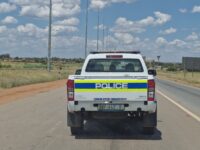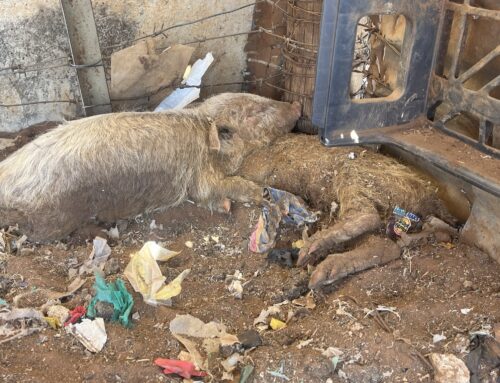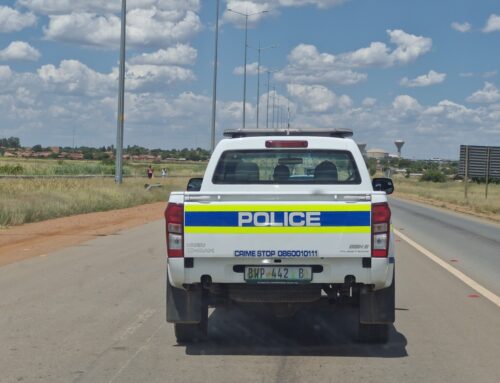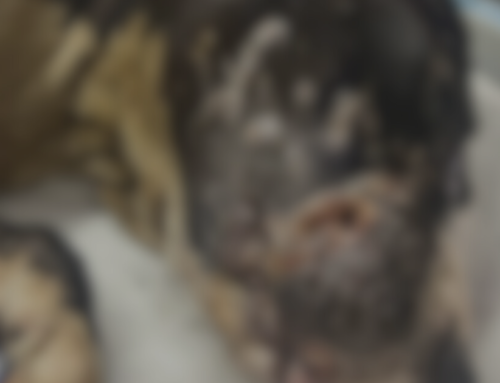The NSPCA’s Wildlife Protection Unit is horrified at the situation playing out at the Madikwe Game Reserve situated in the North-West, bordering Botswana. Flaunting themselves as the “fifth largest game reserve in South Africa” and “one of the best conservation areas in Africa”, the scores of elephants and other wildlife experiencing long, suffering deaths tell another story.
Upon arrival for an inspection after receiving a complaint, the NSPCA Inspectorate could immediately observe the key signs of overgrazing and poor veld management: outside Madikwe’s fence line, is an abundance of nutritional vegetation, a stark comparison to what Madikwe Game Reserves has to offer the animals within the confines of the reserve.
A tragic scene was soon revealed when the NSPCA came across an elephant calf that was in such a weakened state that it was unable to move from the presence of humans and appeared to have been in this dire condition for hours. The elephant was in such a condition that it was humanely euthanised. According to the management of Madikwe, elephant deaths have increased exponentially since August 2024, and with an estimated 1600 elephants on the reserve, the situation is dire and urgent.
On 03 December 2024, the NSPCA returned to, and remains on, the reserve for a second pro-longed inspection, to help in identifying those animals that are in such a dire condition that to prolong their lives would be cruel. On this inspection, an additional two elephants were humanely euthanised by the facility’s veterinarian, due to their extremely poor condition. A flight over the reserve revealed more dead animals, including a giraffe which lay in a body of water. Two white rhinos were seen from the air, also in a poor condition.
It is a travesty that this reserve cannot ensure the welfare and well-being of the animals. NSPCA’s Wildlife Protection Unit Manager, Chief Inspector Douglas Wolhuter, emphasizes that the reserve management “observed the suffering unfold before them and did nothing”.
The overgrazing and lack of vegetation appears to be affecting predominantly browsers. The NSPCA has so far covered over 70% of the reserve, mostly on the ground in vehicles to thoroughly assess the situation.
“It is important to realise that this is not ‘nature’ or ‘nature’s way’”, explains Wolhuter, “as this is a man-made disaster, with years of inaction addressing the overpopulation and lack of vegetation, and increasing bush encroachment.” The outcome is that animals are trapped within the fences of Madikwe, with little to no source of nutrition, and the elephants are the most severely affected and are now suffering the consequences.
The NSPCA is committed to ensuring that this dire situation is addressed without delay and continues to push for urgent intervention from all relevant authorities, which includes any legal action that may be necessary. As custodians of South Africa’s animals, we will not stand idly by while animals endure prolonged agony due to human negligence or mismanagement.


If you are as passionate about animals and their well-being as we are, consider supporting our causes by donating.
Latest News Posts
Will You Be the One Who Takes Action?
Most people will scroll past this. But will you be the one who stands up for animals?
Animal welfare isn’t always in the spotlight, but it changes lives – for every neglected, abused, or suffering animal we help. Our teams work tirelessly, often behind the scenes, ensuring animals across South Africa are protected.
This work is relentless. The challenges are immense. But with more hands, hearts, and resources, we can do even more.
The equation is simple: the more supporters we have, the greater our reach, the stronger our impact.
Be part of the change. Become an NSPCA Project Partner today. From just R50 per month, you can help ensure that no animal suffers in silence.








